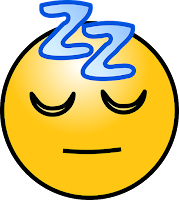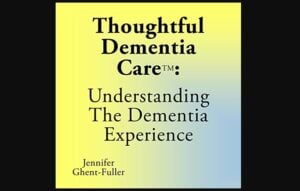Many studies have linked more sleep to better memory, but research in fruit flies demonstrates that extra sleep helps the brain overcome catastrophic neurological defects that otherwise would block memory formation, report scientists at Washington University School of Medicine in St. Louis.
Studying three groups of flies, the scientists interfered with their ability to remember by disabling a different critical memory gene in each group.
Dementia Books & Videos on Amazon:
FREE Newsletter:
In one group, the disabled gene led the flies to develop a condition with similarities to Alzheimer’s disease. In another group, the disabled gene made it difficult for fly brain cells to reinforce new connections that encode memories. In the third group, the disrupted gene left the flies with too many of these connections.
“Our data showed that extra sleep can handle any of these problems,” said senior author Paul Shaw, PhD, associate professor of neurobiology. “It has to be the right kind of sleep, and we’re not sure how to induce this kind of slumber in the human brain yet, but our research suggests that if we can learn how, it could have significant therapeutic potential.”
The study appears online in Current Biology.
Shaw works with fruit flies to explore the brain mechanisms that control sleep, which he and others have shown to be similar to those seen in people.
As part of the study, the scientists restored memory in each group of flies by using one of three techniques to increase sleep. They stimulated a cluster of key brain cells, boosted the production of a protein linked to sleep or gave the flies a drug that mimicked the activity of an important chemical messenger.
Regardless of the technique used to increase sleep, the added slumber — an extra three to four hours of sleep daily over as little as two days — restored the flies’ ability to make memories.
“In all of these flies, the lost or disabled gene still does not work properly,” noted lead author Stephane Dissel, PhD, a senior scientist in Shaw’s lab. “Sleep can’t bring that missing gene back, but it finds ways to work around the physiological problem.”
Shaw and others believe sleep helps the brain reinforce connections between brain cells that encode important memories and cut back connections that encode useless information.
MORE INFORMATION:
The research was supported by the National Institutes of Health (NIH), grants R01-NS051305-01A1, NS057105 and T32GM008151; and NIH Neuroscience Blueprint Core, grant number NS057105.
Washington University School of Medicine’s 2,100 employed and volunteer faculty physicians also are the medical staff of Barnes-Jewish and St. Louis Children’s hospitals. The School of Medicine is one of the leading medical research, teaching and patient-care institutions in the nation, currently ranked sixth in the nation by U.S. News & World Report. Through its affiliations with Barnes-Jewish and St. Louis Children’s hospitals, the School of Medicine is linked to BJC HealthCare.
SOURCE:
Washington University School of Medicine via Newswise
REFERENCE:
Dissel S, Angadi V, Kirszenblat L, Suzuki Y, Donlea J, Klose M, Koch Z, English D, Winsky-Sommerer R, van Swinderen B, Shaw PJ. Sleep restores behavioral plasticity to drosophila mutants. Current Biology, online April 23, 2015.












Sounds like common sense
Sleep really is important- lots of people don't get enough